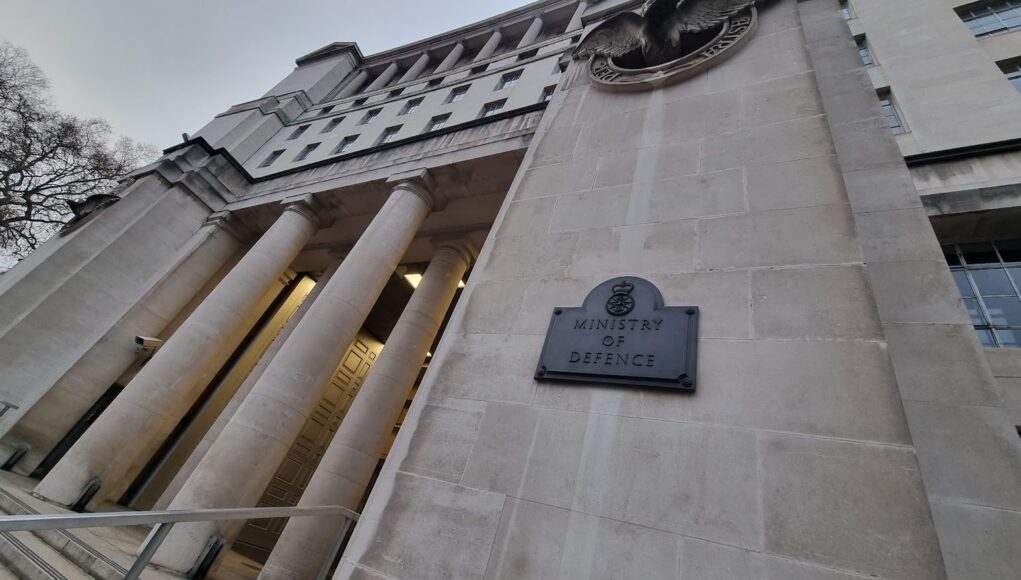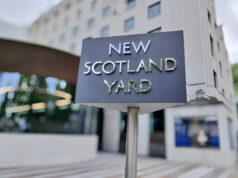The Ministry of Defence has disclosed additional details on the number of reservist posts recruited to process Service Complaints in the Army, Royal Navy, and Royal Air Force, according to a written parliamentary answer.
Responding to a question from Lord Lancaster of Kimbolton, Defence Minister Lord Coaker clarified:
“The data has been provided by the three Services, who manage the Service Complaints process. Service Complaints are managed by the single Services, not by Commands, and thus Strategic Command is not included.”
Under these arrangements, the Royal Navy reported:
- 2020: no extra reservist posts.
- 2021: three Volunteer ex-Regular Reserve (VeRR) posts.
- 2022: no extra reservist posts.
- 2023: seven extra VeRR posts.
- 2024: no extra reservist posts.
For the Army, the figures are:
- 2020: no extra reservist posts.
- 2021: eight “lifed” Full Time Reserve Service (FTRS) posts made permanent.
- 2022: two additional FTRS posts.
- 2023: 14 additional VeRR posts.
- 2024: no extra reservist posts.
The Royal Air Force held no recorded data for 2020 to 2022, but confirmed:
- 2023: no extra reservist posts.
- 2024: ten additional VeRR posts.
Lord Coaker’s statement underscores how each Service independently manages its own Service Complaints workload. Although no changes are mentioned for Strategic Command, which was “not included” in the data, the figures show a notable emphasis on recruiting additional VeRR and FTRS personnel in certain years, particularly for the Army and Royal Navy in 2023 and for the RAF in 2024.
The response gives a clearer picture of how the Armed Forces have been adapting their resources to address Service Complaints processing over the past five years.
At the UK Defence Journal, we aim to deliver accurate and timely news on defence matters. We rely on the support of readers like you to maintain our independence and high-quality journalism. Please consider making a one-off donation to help us continue our work. Click here to donate. Thank you for your support!














With requisite rainbow lanyards? Sorry, I’m getting old.
Service police should deal with Service complaints, end of; there is simply too much duplication of effort and hierarchy in the forces and a very limited budget.
That typical old fashion and outdated military reply “end of” Giving the impression you are right and no discussion allowed! Come on, get with the times!
No, just a proliferation of posts that cost money, when the money would be better spent on teeth arms and their CS/CSS.
Why should Service Police deal with Service Complaints? SC’s are not a criminal matter, but a professional standards matter.
late 14c., compleinen, “lament, bewail, grieve,” also “find fault, express dissatisfaction, criticize,” also “make a formal accusation or charge to an authority,” from stem of Old French complaindre “to lament” (12c.), from Vulgar Latin *complangere, originally “to beat the breast,” from Latin com-, here perhaps an intensive prefix (see com-), + plangere “to strike, beat the breast” (from PIE root *plak- (2) “to strike”).
Answer in the text. MP do GPDs and take all manner of ‘complaints.’
Yes but you don’t (or indeed shouldn’t) complain to your local police for matters that are unlawful; breaches of civil law. Rather the police deal with criminal breach of law, matters that are illegal. It’s a similar distinction. The Services have a process for dealing with criminal conduct (illegality) and for non-criminal grievances (potentially unlawful).
I would ‘complain’ to customer services in a supermarket, it’s doesn’t mean I want someone from Sainsbury’s to be arrested for selling me out of date yogurt. Regardless of the 12th century entomology of the word.
The etymology of the word has nothing to do with the legalities of a complaint. As I said, SC’s are not a criminal matter, they are a professional standards matter and so shouldn’t be dealt with (as NomDeGuerre pointed out) by a branch that deals with criminal complaints.
This is a really valuable way of the Reserves bringing capacity to the wholeforce. There is a constant trickle of Service Complaint roles advertised via SERVE. Brings a wealth of experience and understanding whilst taking it out of the inboxes of busy staff officers across the enterprise.
Absolutely nothing to do with Service Police or Rainbow lanyards (comments which are at best demonstrating a myopic and outdated understanding of the military, or more likely simply an attempt to be offensive). This is about any personnel being able to raise legitimate grievances or – now they have removed the representation process – raising better ways of working. The regular forces struggle with Staffing capaccity so give it to the retired/reserve community. Exactly what we should be doing! End of! 😀
This is a really valuable way of the Reserves bringing capacity to the wholeforce. There is a constant trickle of Service Complaint roles advertised via SERVE. Brings a wealth of experience and understanding whilst taking it out of the inboxes of busy staff officers across the enterprise.
Absolutely nothing to do with Service Police or Rainbow lanyards (comments which are at best demonstrating a myopic and outdated understanding of the military, or more likely simply an attempt to be offensive). This is about any personnel being able to raise legitimate grievances or – now they have removed the representation process – raising better ways of working. The regular forces struggle with Staffing capacity so give it to the retired/reserve community. Exactly what we should be doing! End of! 😀
Myopic? Wasting money on rainbow lanyards and flags is not myopic, it is concentrating on getting the job, jobbed. Money spaffed on rainbows is money spaffed. Simples.
Fair challenge. I don’t necessarily belief that the majority of people’s issue with ‘rainbow lanyards’ is the waste. Rather bigotry; which is by its nature myopic/narrow. I may be completely wrong in your case in which case I apologise. But the caveat of ‘Sorry, I’m getting old’ somewhat appears like you are excusing yourself for saying something offensive. I do not see a rainbow lanyard as any more wasteful than a branded landyard telling everyone you work in ‘HMS KENT’ or ‘Defence Digital’ (although in the former case, ship’s lanyards cannot be publicly funded, I am unsure how it applies to defence wide budgeting restrictions). Surely the purpose of a lanyard is to bring unit cohesion, a sense of identity or belonging, which I would say equally applies to those serving with protected characteristics. There is a lot of underlying nastiness (and arguably somethings far more sinister) surrounding the treatment of minorities in the military at the moment, much of it being mirrored from the rhetoric of the new US administration. The scary thing to remember is that the holocaust didn’t begin with people being piled onto trains, it began 15 years earlier with dehumanizing language and the alienation of minorities. If waste is truly your concern, then there are far greater wastages in the military to be upset about… unless of course the cash isn’t really the problem. These are people who want to serve, if wearing a lanyard helps to motivate them, helps bring a sense of identity and belonging then what is the issue. We should be supporting them regardless of what colour lanyard they are wearing.
Cap tallies not lanyards have the Ships name just correcting yor slight slip .
Agreed. I’ve seen numerous Service Complaints in my time get handed in, the *vast* majority have been complaints about bad admin or paperwork negatively affecting reporting/careers or chains of command prioritising operational outputs/pet projects over individual career courses. I don’t think I’ve ever seen a service complaint that would have required the intervention of the Police.
Would it better for each service to pass on complaints to another service ie, Navy to Army or Air Force to Navy…? I just worry about how independent they, are especially when you read “….Service independently manages its own Service Complaints workload”. I get that each service knows it’s own organisation but Values and Standards are pretty much standard across all services.
Service Complaints generally are not serious enough to warrant that kind of inter service hand off. A typical service complaint might be something like “My 1RO didn’t complete my annual report in a timely manner.” or “My SJAR stated that I am unfit and marked me down but if you consult my MPAR you can see that this issue was never raised to me.”
There is a similar agreement to what you suggest for particular aggravating complaint processes. For example, I was assisting with a complaint that had named a large number of senior personnel in a small sub-branch as respondents. The Navy secretariat decided that there was no objective way for the Command to investigate as the senior members of the branch were potentially implicated, it so it was passed to the RAF who had similar expertise but no conflicting interest.